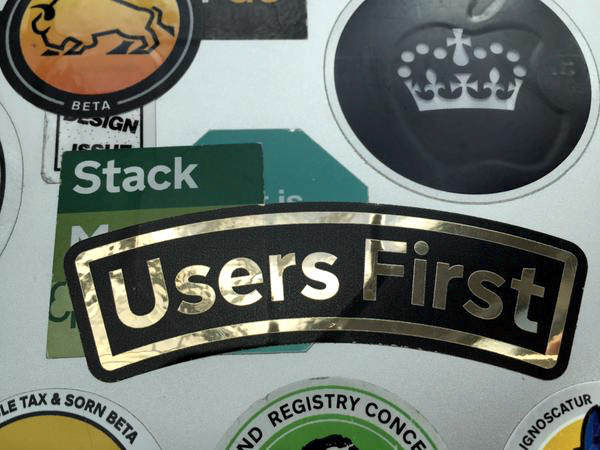'Start with user needs' is the first of our design principles and it's the first thing we ask teams to demonstrate to meet the Digital by Default Service Assessment. Even Members of Parliament (video) talk about user needs these days. This is all good.
But what does it actually mean to understand user needs? How do we do it right?
Observe and talk to end users
Do user research to observe and talk to users. Understand what people are really trying to do, and the real problems they have trying to get something done. That will show you what their needs are.
Needs can be functional and emotional
Needs can be functional things people need to do, for example, to check eligibility. Needs can also be emotional, perhaps people are stressed and anxious and they need reassurance.
Both of these types of needs are important to understand if you want to design services that are so good people choose to use them, and are able to use them without assistance.
There's no substitute for talking to real users
You need to go to the source - to the user, and discover (not just validate) the user needs.
You may get some user needs from stakeholders, but you won't get them all. You can’t even guarantee to get the most important user needs from stakeholders.
Some of our colleagues might be service users, but at the very least we tend to know far too much about government and technology to accurately represent ‘typical’ end users.
Treat 'user needs' from stakeholders as assumptions
You are not your user and you cannot think like a user unless you're meeting users regularly.
Our delivery teams and various stakeholders never accurately represent our end users. Not even when our end users are civil servants. Treat any user needs you get from stakeholders as assumptions.
Get out into the field
In the discovery phase of your project, your team should be out in the field doing user research. You should be discovering what your end users are doing when they encounter your service.
This let’s you make sure that your service is a verb - a thing that supports a task that people are trying to do, not a noun - the thing you’ve always called the form before.
Understanding user needs saves money
Understanding user needs enables better service design which results in greater digital take up, higher compliance, more effective policy outcomes, fewer user errors and inaccuracies, reduced failure demand and, overall, makes your service better value and cheaper to run.
And it also just makes the world a better place. That’s good too.
Keep in touch. Sign up to email updates from this blog. Follow Leisa on Twitter.
